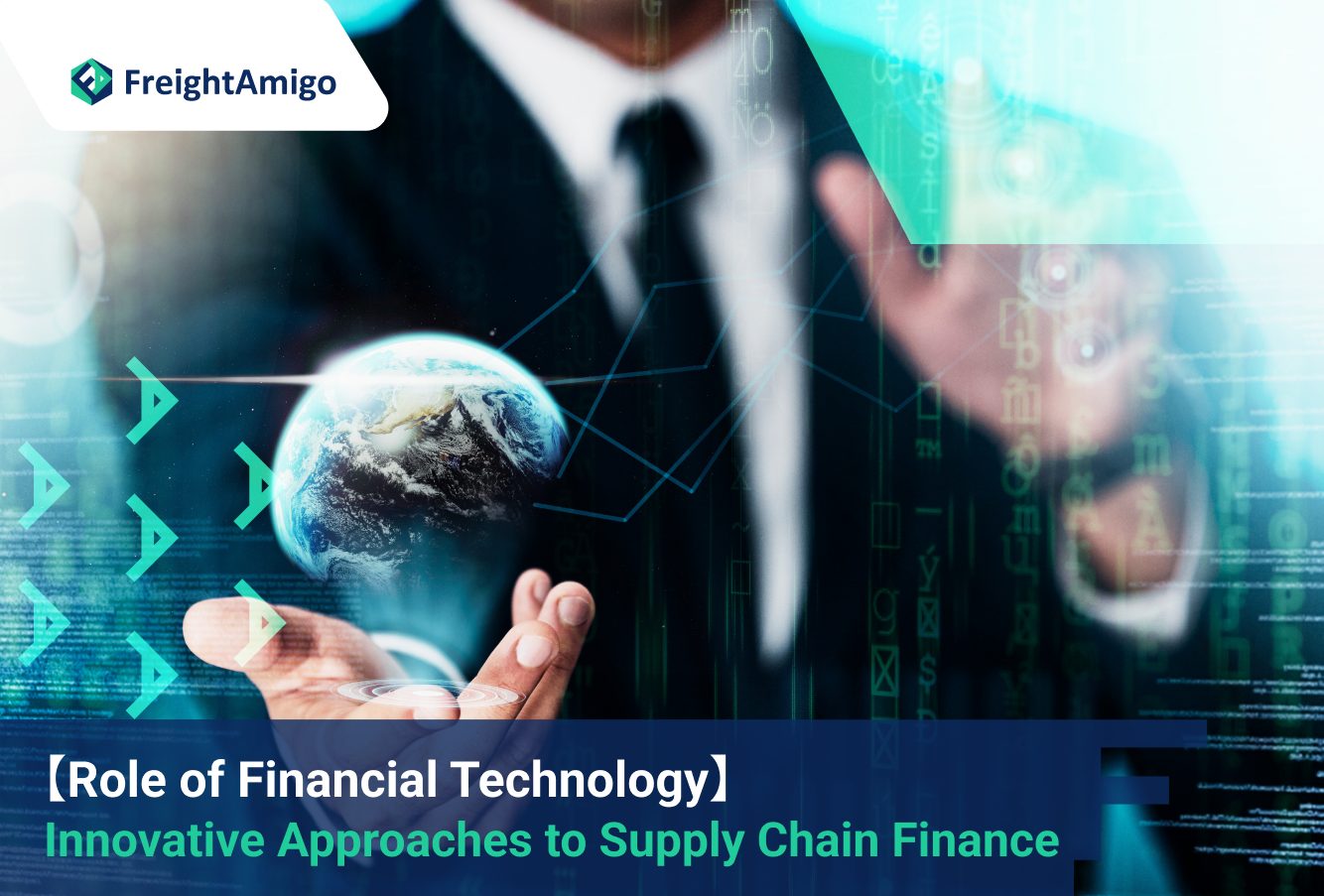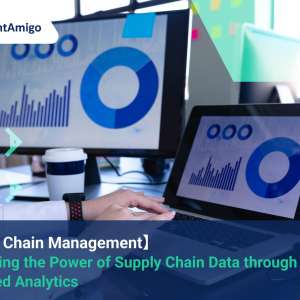Author Name: Tiffany Lee – Marketing Analyst at FreightAmigo
In today’s fast-paced digital era, Financial Technology (FinTech) has been revolutionizing various sectors, including Supply Chain Finance. The interplay between FinTech and Supply Chain Finance is reshaping how businesses operate, paving the way for enhanced efficiency, transparency, and risk management. This article delves into the profound impact and the pivotal role of FinTech in advancing Supply Chain Finance.
Want To Compare The Best Express, Air Freight, Sea Freight, Rail Freight & Trucking Rates So As To Have Better Control On Cost?
Understanding Supply Chain Finance
Supply Chain Finance, in its essence, is a set of technology-based solutions designed to bridge the financial gap between different parties in a supply chain, from producers to distributors to consumers. It offers a strategic approach to improving cash flow by enabling businesses to extend their payment terms with suppliers while providing the option for their suppliers to get paid early. This leads to a win-win scenario, enhancing the financial stability of both parties.
The Role of Financial Technology
Financial Technology, commonly known as FinTech, refers to the innovative use of technology in the design and delivery of financial services. It’s an umbrella term that encompasses a myriad of technologies – from digital wallets and blockchain to artificial intelligence (AI) and machine learning. Fintech is radically transforming the financial landscape, driving unprecedented changes in financial services and their delivery.
The Intersection of FinTech and Supply Chain Finance
The fusion of FinTech and Supply Chain Finance has resulted in a new realm of possibilities. FinTech solutions like blockchain technology, AI, predictive analytics, and machine learning are being leveraged to automate and streamline supply chain financial operations. These technologies bring about improved transparency, faster transactions, and real-time tracking, leading to reduced costs and increased efficiency in Supply Chain Finance.
Mitigating Fraud Risks in Supply Chain
Supply chains, given their complex and interconnected nature, are often susceptible to fraud. These can range from false invoicing and counterfeiting to theft of goods and manipulation of records. Implementing FinTech solutions can significantly mitigate these fraud risks. Advanced algorithms can monitor transactions in real-time, flagging any anomalies that may indicate fraudulent activity. Additionally, blockchain technology can provide an immutable record of transactions, making any unauthorized changes easily traceable and thus deterring fraudsters.
Enhancing Financial Visibility through FinTech
One of the key benefits of incorporating FinTech into Supply Chain Finance is enhanced financial visibility. FinTech solutions offer comprehensive real-time analytics, enabling businesses to monitor costs across the entire supply chain. This facilitates better financial planning and decision making, allowing businesses to quickly isolate unusual activities and potential fraud risks.
Vetting Logistics and Supply Chain Management Partners
In a global supply chain, businesses work with numerous partners, including suppliers, manufacturers, distributors, and logistics providers. FinTech can play a vital role in vetting these partners. Advanced analytics and AI can provide real-time insights into a potential partner’s creditworthiness, reputational standing, and conflict of interest. This can help businesses identify and mitigate potential risks in their supply chain partnerships.
Inventory, Equipment and Plant Operations Management
Inventory management is a critical aspect of Supply Chain Finance. Effective management of inventory, equipment, and plant operations can lead to significant cost savings and efficiency improvements. FinTech solutions, employing technologies like IoT and RFID, can enable real-time tracking of inventory and equipment, preventing losses and ensuring optimal utilization of resources.
Increasing Visibility with Data
Data is a powerful tool that can significantly enhance visibility across the supply chain. Big data analytics, powered by AI and machine learning, can provide valuable insights into various aspects of the supply chain. These insights can help businesses identify bottlenecks, optimize operations, and make informed strategic decisions. Moreover, predictive analytics can forecast future trends and challenges, enabling businesses to stay one step ahead.
End-to-End Digitization in Supply Chain
The concept of end-to-end digitization is gaining prominence in Supply Chain Finance. This involves the use of digital technologies to automate and streamline all stages of the supply chain, from procurement of raw materials to delivery of finished goods. End-to-end digitization can lead to improved efficiency, reduced costs, and enhanced customer satisfaction.
The Future of FinTech in Supply Chain Finance
The future of Supply Chain Finance is set to be shaped significantly by advancements in FinTech. With the advent of technologies like AI, blockchain, IoT, and machine learning, the possibilities are virtually limitless. These technologies will continue to drive innovation in Supply Chain Finance, ushering in an era of unprecedented efficiency and transparency.
Challenges and Considerations
Despite the immense benefits, the integration of FinTech in Supply Chain Finance doesn’t come without its challenges. These include issues related to data security and privacy, regulatory compliance, and technological interoperability. Businesses need to carefully consider these factors and adopt a strategic approach to successfully leverage FinTech in their supply chain operations.
Conclusion
In conclusion, FinTech is playing a transformative role in reshaping Supply Chain Finance. By enhancing transparency, reducing fraud risks, and improving efficiency, FinTech is enabling businesses to navigate the complexities of the global supply chain more effectively. Despite the challenges, the benefits of integrating FinTech into Supply Chain Finance are undeniable, marking the dawn of a new era in global commerce.
There Are Different Options For Cargo Transportation. If You Want To Choose The Most Convenient And Suitable Solution, It Is Best To Have The Full Support Of Logistics Experts! If You Are Planning To Ship Goods Overseas, Please Go To The FreightAmigo Page For Inquiries.
===
Read More:
【Cosmetic Product Recycling】 A Guide to Sustainable Reverse Logistics
【Rise of Green Supply Chain】 Pioneering Sustainable Practices in Logistics
【ESG in Logistics】 How ESG Practices Drive Social Responsibility in Logistics
===
If you have any inquiries on logistics/supply chain, feel free to contact FreightAmigo now:
Chat with us online OR
Phone : +852 28121686
WhatsApp: +852 27467829









































